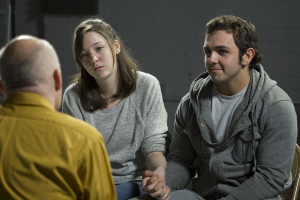
24 Jul ACOA: How Alcoholism Effects Your Children as Adults
Alcohol abuse in a family deeply effects how the children in the family will respond to alcohol. One path these effects could take is your children also abusing alcohol and other drugs. This is because it would become a learned and acceptable coping strategy for your children when faced with difficult situations. The other path that these effects could take is that your children would avoid use of alcohol all together. This avoidance can go as far as fear of becoming addicted themselves. It is important to be aware of the effects that your drinking has on your family members, especially your children. Children learn mainly through observation. If they see alcoholism, they are more likely to become alcoholics themselves. So what can you do to ensure that your children receive the treatment that they may also need?
Adult Children of Alcoholics (ACoA) is a branch of Al-Anon (support group for family members of alcholics) that focuses specifically on the adult children of alcoholics. ACoA exists to help educate and heal; educate about alcoholism and heal the scars left by their parent’s substance abuse. ACoA is a peer based support group, aimed at helping recovery within the family.
ACoA gives these children the opportunity to focus on their own recovery, all while their family member works on their own recovery. Often times, individuals will reach out to ACoA before their parent has decided to seek help. This is because they feel the need to know more about alcoholism than their family member has told them. They want to see past the drinking, and the other behaviours, into the causes of the alcoholism. Sometimes they just want support in making decisions regarding their relationship with their alcoholic parent.
Recovery is something that the entire family must go through. It is impossible for the addicted parent to have a successful recovery, if they are coming home to the same environment that they left. The children are responsible for learning what the triggers and warning signs are, to help their parent work through a relapse or help to prevent one from happening. Part of this recovery process is learning about codependency and what role they may have played in enabling the parent’s behaviours. It is also a time to reflect of manipulative behaviours that have been exhibited in the past. By doing so, they can learn a better way in which to handle these situations.
Alcoholism often has a greater effect than we sometimes realise. It is important that all parties are considered when dealing with the recovery process. Ensuring that all family members, including the adult children, have a place to seek support is very important. Without recovery within the family, true recovery may not be successful within the addict.


